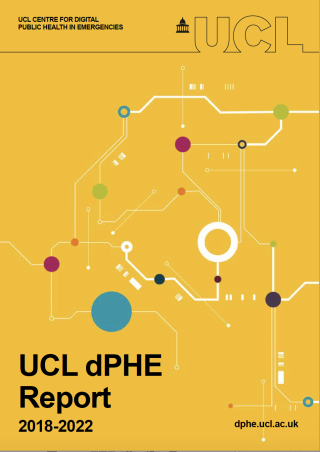dPHE 6th Annual Workshop: Vector-borne diseases Digital One Health approach
15 May 2024, 3:00 pm–9:00 pm
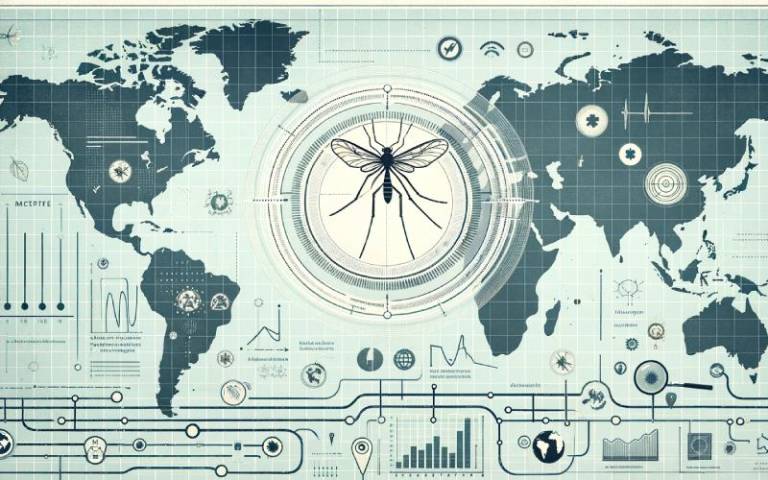
Join the UCL dPHE Centre to celebrate its 6th anniversary during its annual conference and interdisciplinary workshop.
This event is free.
Event Information
Open to
- All
Availability
- Yes
Cost
- Free
Organiser
-
Professor Patty Kostkova – UCL Institute for Risk and Disaster Reduction
Location
-
124 Gideon Schreier Lecture TheatreBentham HouseEndsleigh GardensLondonWC1H 0EGUnited Kingdom
Join us at an international workshop on ‘Vector-borne diseases - the Digital One Health approach’ to celebrate the UCL dPHE Centre's 6th anniversary, presenting a line-up of stellar international speakers including Dr Diana Rojas Alvarez from WHO Emergency Programme (WPE/WHE) and the UN One Health Initiative, Dr Pedro Ramos, the Regional Minister of Health, Madeira, Portugal, Dr Jailson Correia, former leader of the Zika outbreak response in Brazil in 2015, Prof Kate Jones, world leading ecologist and modeller and Prof Patty Kostkova, digital health and surveillance expert from UCL, Prof Tercio Ambrizzi, weather and climate modelling leaders, USP, Brazil, and many more.
Vector-borne tropical diseases (such as Zika, chikungunya and dengue) – transmitted by the mosquito Aedes aegypti – are endemic in Northeast Brazil, where the devastating Zika outbreak took place in 2015, and across all tropical parts of Brazil and Latin America. In Europe, on the island of Madeira, an unexpected deadly outbreak of dengue fever occurred in 2012. Surveillance of the vectors – aiming to destroy the mosquitoes ideally in a larvae stage – is mostly manual and paper-driven, and a poorly funded operation by government environmental agencies can cause needless human loss through inadequate public health responses. Vector-borne diseases are highly climate-sensitive – as global warming is contributing to the changing habitat of mosquitoes, vector-borne tropical diseases will become endemic in Europe and other parts of the world.
This interdisciplinary workshop will present the results of the MEWAR project (2019-2024) – digital vector surveillance collecting data for spatio-temporal models determining vector dynamics and predicting high-risk breeding hotspots. The digital One Health approach – human, animal and environmental surveillance and modelling – enables early warning and rapid response protecting public health, and in the long run will accelerate the development of climate-resilient, sustainable and equitable health systems.
Programme
Time | Speaker | Affiliation | Talk Title |
2:45 | Registration | ||
Welcome | |||
3:00 | Professor Gail Taylor | Dean of the Faculty of Life Sciences, University College London, UK | Opening remarks |
Professor Patty Kostkova | UCL Centre for Digital Public Health in Emergencies, University College London, UK | Welcome & Introduction: One Digital Health & MEWAR | |
Session 1 | |||
3:15 | Dr Pedro Ramos | Regional Secretary for Health and Civil Protection, Regional Government of Madeira | Opening Keynote Talk: Atlantic Health System: A digital challenge for the future |
3:45 | Chair: Prof Kate Jones | dPHE, UCL & People and Nature Lab
| Panel Debate: Digital sensing and vector modelling of vectors in the context of climate change |
Dr Bruna R. Ornelas de Gouveia | Regional Director of Health, at the Regional Health Directorate, Government of Madeira, Portugal | ||
Professor Tércio Ambrizzi | Director of the Institute of Energy and Environment - IEE, University of São Paulo | ||
| Dr. Merve Tunali | Swiss Federal Laboratories for Materials Science and Technology, Switzerland | ||
Dr Ella Browning | Research Fellow based between the UCL Centre for Biodiversity and Environment and dPHE | ||
4:45-5:15 | Coffee break | ||
Session 2 | |||
5:15 | Chair: Professor Patty Kostkova | UCL Centre for Digital Public Health in Emergencies, University College London, UK | Panel Debate: Digital diseases surveillance - public health response in the real world |
| Dr Bruna R. Ornelas de Gouveia | Regional Director of Health, at the Regional Health Directorate, Government of Madeira, Portugal | ||
Professor Tiago Massoni | Department Systems & Computing, Federal University of Campina Grande, Campina Grande, Brazil | ||
Professor Jailson de Barros Correia | University of Pernambuco, Instituto de Medicina Integral Prof. Fernando Figueira and Faculdade Pernambucana de Saúde | ||
Dr Eduardo Rodrigues de Lima | Research and Development Manager, Eldorado Research Institute | ||
George Wallenberg | Environmental surveillance operational supervisor, Recife City Hall | ||
Aisha Aldosery | Centre for Digital Public Health in Emergencies, University College London, UK | ||
6:15 | Dr Diana Rojas Alvarez | Department Epidemic and Pandemic Preparedness and Prevention, Health Emergencies Programme, WHO | Closing Keynote Talk: One Health: A multisectoral approach for preparedness, prevention and control of vector-borne diseases |
6:45 | Professor Joanna Faure Walker | Head of Department, Institute for Risk and Disaster Reduction, University College London, UK | Closing remarks |
7:00-9:00 | Poster session and drinks reception | ||
Poster topics and speakers | |||
MANTRA game analytics: Effectiveness of educational mobile game on knowledge gain and retention of Female Community Health Volunteers (FCHVs) and women in rural Nepal assessed through game analytics | Dr Katerina Stavrianaki, UCL IRDR and UCL Department of Statistical Science | ||
Connecting the Dots: Exploring the Links Between Dengue Incidence and Environmental Factors in São Paulo and Recife, Brazil | Prof Tercio Ambrizzi, Iuri Valerio Graciano Borges, University of São Paulo | ||
Aedes Aegypti surveillance on Madeira Island | José Maurício Faria Santos, Duarte Araújo, Guilherme Madruga, Maria Monte, Direção Regional da Saúde da Madeira | ||
How has the experience of COVID-19 shaped perceptions of pandemic risk? | Emma Back, Centre for Digital Public Health in Emergencies (dPHE), University College London, UK | ||
The direct and indirect effects of China’s COVID-19 policies: A mixed method study | Xiaohui Shen, dPHE, UCL, UK | ||
Internet of Things based Surveillance System for Predicting Areas with High-risk of Mosquito Infestation | Aisha Aldisery, dPHE, UCL, UK | ||
Tailored Intervention Strategies to Improve Influenza Vaccination Knowledge, Attitude and Behavior among Chinese University Students in the UK: A Three-Step Approach | Lan Li, dPHE, UCL, UK | ||
| Challenges and Opportunities: Deploying Surveillance IT for Mosquito Surveillance in Brazil | Tiago Massoni, George Wallenberg, Clarisse Lins, Ana Gomes, Giselle Moreno, Wellington Pinheiro | ||
| Spatiotemporal modelling reveals increased arbovirus outbreak risk due to recent recovery of Aedes aegypti mosquitoes on Madeira | Ella Browning, Kate E. Jones, Aisha Aldosery, Bruna Ornelas de Gouveia, Patty Kostkova | ||
| Exploring Sanitation Conditions and Arbovirus Mosquitoes: A Comparative Study Between Turkey and Brazil | Merve Tunali, Clarisse Lima, Mehmet Meric Tunali, Iuri Valerio Graciano Borges, Anwar Musah, Orhan Yenigun, Patty Kostkova, Luiza Campos | ||
Confirmed speakers
Welcome
- Professor Gail Taylor, Dean of the Faculty of Life Sciences, University College London, UK
- Gail Taylor is the incoming Quain Professor of Botany and Dean of Life Sciences, University College, London, a global top-ten university. Prior to this appointment, she was, for seven years, the John B Orr Professor of Plant Environmental Sciences, Distinguished Professor and Chair of the Department of Plant Sciences, UC Davis. Her research is focused on using plant functional and quantitative genomics to address issues of environmental sustainability, enabling a future circular bioeconomy where green plant are central to the delivery of solutions for a sustainable planet. She is currently a coordinately lead author on the UNEP Global Environmental Outlook, due to be published in 2026.

- Professor Patty Kostkova (dPHE director, UCL IRDR)
- Patty Kostkova is Professor in Digital Health and the Director of UCL Centre for Digital Public Health in Emergencies (dPHE). She was a consultant at WHO, ECDC, Sky, Telefonica. Her research investigates mobile surveillance in Brazil, maternal health in Nepal and antibiotic stewardship in Nigeria and the NHS. During COVID-19, she lead an award winning project My Lockdown Journal. In 2019 and 2020, Patty won the 'Innovator of the Year' Award by Computing Women in IT Excellence Awards and the prestigious Coronaprofile by Business Science, while her team won the Team of the Year 2020 Award by Computing Rising Stars Awards. Patty published over 230 peer-reviewed papers, and is the Editor in chief of Frontiers in Digital Public Health, and General and Scientific Chair of International Public Health Conference since 2009.

Session 1
- Dr Pedro Ramos, Regional Secretary for Health and Civil Protection, Regional Government of Madeira
- Dr Pedro Ramos has been a member of the Regional Government of Madeira Health System since 2016. He served on various commissions, including the Farmacy and Therapeutic Commission CFT-RAM, Hospital Transfusion Commission, and PPCIRA Regional Against Infection (2014-2016), demonstrating his commitment to improving healthcare standards. Dr. Ramos's special interests include trauma, oncology (particularly breast cancer), surgical education, training, simulation, and health unit management. He also held the position of Vice-chair of the Military Surgery and Disaster Section of ESTES (2015-2017). He is the former Director of the Madeira Clinical Simulation Center (2012-2016) and Clinical Director of SESARAM, EPERAM (2016), bringing extensive experience in healthcare management and education.
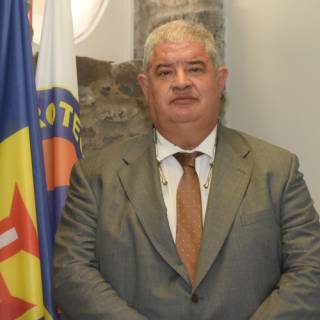
- Professor Kate Jones (dPHE, UCL & People and Nature Lab)
- Kate Jones has held appointments at the University of Cambridge, Columbia University, University of Virginia, Imperial College London, and is an honorary fellow at the Zoological Society of London. She has written over 150 articles and book chapters in prestigious journals, is a UK government scientific advisor, chaired The Bat Conservation Trust for 5 years, and served as an expert advisor to the UK’s Climate Change Committee. Kate won the Leverhulme Prize for outstanding contributions to Zoology in 2008, and in 2022 won both ZSL’s Marsh Award for Conservation Biology and British Ecology Society’s Marsh Award for Ecology.

- Dr Merve Tunali, Swiss Federal Laboratories for Materials Science and Technology, Switzerland
- Merve Tunali is a post-doctoral researcher at the Swiss Federal Laboratories for Materials Science and Technology. She holds degrees in environmental engineering and business administration, and completed her PhD in environmental technology at Bogazici University. Following her doctoral studies, she involved in the Mosquito Population Modelling for Early Warning System and Rapid Response by Public Health Authorities (MEWAR) project, in collaboration with University College London, University of São Paulo, and University of Campina Grande.

Besides MEWAR, her research focuses on various environmental topics, particularly Safe and Sustainable by Design, microplastics, and life cycle assessment. She has been recognized with several awards&grants from institutions in Europe. Her current publications can be accessed at https://orcid.org/0000-0003-1612-4705.
- Dr Diana Rojas Alvarez, Department Epidemic and Pandemic Preparedness and Prevention, Health Emergencies Programme, WHO
- Diana Rojas Alvarez is a Medical Doctor with a Masters in Tropical Infectious Diseases and a PhD in infectious diseases Epidemiology. With more than 15 years of experience on arboviral diseases epidemiology and public health, including surveillance, clinical management, preparedness, prevention, outbreak control activities in developing countries and control programs at regional and national level.

She also has research experience on transmission dynamics and mathematical modelling of arboviruses, other emerging pathogens and modelling the impact of interventions such as vaccines, vector control among others.
In June 2020, she joined WHO as the Technical Lead for chikungunya and Zika in the Emerging Diseases and Zoonosis unit at the Epidemic and Pandemic Preparedness and Prevention Department (WHE). Since then, she has been co-leading the development of the WHO Global Arbovirus Initiative and expanding collaborations with other relevant internal and external partners and strengthening the global networks with regional offices for the surveillance, monitoring, prevention, treatment, and control of emerging arboviral diseases. - Professor Tércio Ambrizzi, Director of the Institute of Energy and Environment - IEE, University of São Paulo
- Tércio Ambrizzi is a full Professor at the Department of Atmospheric Sciences, University of Sao Paulo (USP), Brazil. He is coordinator of INCLINE (INter-disciplinary CLimate INvestigation cEnter) USP's Center for Research on Climate Change. Titular member of the Brazilian Academy of Sciences. Works in the area of Atmospheric Sciences, with emphasis on Dynamic Meteorology, Numerical Modeling and Climate Change. He has published hundreds of articles in specialised journals, several book chapters and supervised many Ph.D., MSc. and Pos-Doc students. Nowadays he is the Director of the Institute of Energy and Environment, USP.
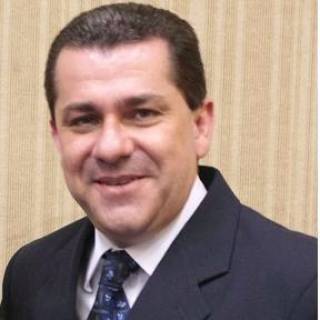
- Dr Bruna R. Ornelas de Gouveia, Regional Director of Health, at the Regional Health Directorate, Government of Madeira, Portugal
Dr Bruna R. Ornelas de Gouveia is the Regional Director of Health, at the Regional Health Directorate, Government of Madeira. She is also an adjunct Professor at the Polytechnic Higher Education, ESESJCluny. She is an integrated researcher at the Interactive Technologies Institute (LARSys, Instituto Superior Técnico) and a collaborator at the Center for the Interdisciplinary Study of Gerontology and Vulnerability (CIGEV – University of Geneva). Her main research areas include epidemiology and public health; digital health; development and evaluation of complex interventions for health and physical activity promotion; Human development, growth and aging.
- Dr Ella Browning, University of Oxford
- Ella is a post-doctoral researcher now based in Biology at the University of Oxford, previously at UCL in the Centre for Biodiversity and Environment Research and dPHE. She is an ecologist and zoologist, interested in identifying the impacts of environmental change on biodiversity. Her research has addressed understanding biodiversity population trends and how environmental and anthropogenic factors affect them using spatial-temporal statistical modelling tools. Her work also focuses on improving biodiversity monitoring using passive acoustics, ‘Internet of Things’ devices, and citizen science methods. Under the MEWAR project, her role focussed on utilising spatio-temporal modelling methods to predict increases in mosquito abundance in response to socio-economic, climatic, and landscape factors.

Session 2
- Professor Patty Kostkova, UCL Centre for Digital Public Health in Emergencies, University College London, UK
See above.
- Dr Pedro Ramos, Regional Secretary for Health and Civil Protection, Regional Government of Madeira
See above.
- Professor Tiago Massoni, Department Systems & Computing, Federal University of Campina Grande, Campina Grande, Brazil
- Tiago Massoni is an Associate Professor at the Federal University of Campina Grande, Northeast of Brazil. His main research interest is software engineering, in special software architecture and verification, and its applications, including health care, having advised more than 30 graduate students. He currently is the head of Telmo Araujo Technological Innovation Center, which encompasses more than 40 R&D partnerships between the university and companies. He has been cooperating with research with vector-borne diseases for at least 7 years, engaging in IT-based solutions to support the research activities.
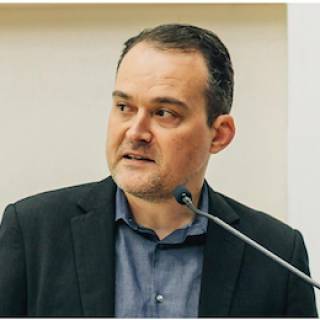
- Professor Jailson de Barros Correia, University of Pernambuco, Instituto de Medicina Integral Prof. Fernando Figueira and Faculdade Pernambucana de Saúde
- Jailson B. Correia, a physician and university professor in Recife, Pernambuco, Brazil, holds a Master’s degree in Tropical Pediatrics from the Liverpool School of Tropical Medicine and a PhD from the University of Liverpool, UK. He has served as Director of the Department of Science and Technology at the Ministry of Health and as Secretary of Health in Recife, leading responses to the Zika epidemic and COVID-19 pandemic. Currently, he teaches at the University of Pernambuco, Instituto de Medicina Integral Prof. Fernando Figueira – IMIP, and Faculdade Pernambucana de Saúde, covering topics such as Pediatric Infectious Diseases, Global Child Health, Methods in Higher Education, Population Health Management, and Digital Health.

- Dr Eduardo Rodrigues de Lima, Research and Development Manager, Eldorado Research Institute
- MCTI/CNPq (Brazilian Ministry of Science, Technology and Innovation/National Council for Scientific and Technological Development) Fellow in Technological Productivity, PhD and DEA in Telecommunications from Technical University of València - UPV, Specialization in Mobile Communication from UPV/Vodafone, Bachelor Degree in EE by University of São Paulo State – UNESP, Vocational Training in General Mechanics from SENAI and Electronics Technician. R&D Manager of the Exploratory Hardware Design Department at Eldorado Research Institute and Visiting Professor at FEEC/UNICAMP, in Campinas (Brazil). His main research interests are in the implementation (in Silicon, FPGA and Microprocessors) and theoretic aspects of physical layers of wireless and wired communications systems, Radio Frequency transceivers in CMOS, Sensing, IoT and Artificial Intelligence, Blockchain, O-RAN 5G. He coordinates several R&D projects related do Microelectronics, Embedded System, Wireless Communication, Artificial Intelligence, Smart Grid and IoT. He was the vising researcher at IMEC. He is author and co-author of more than 100 peer reviewed papers in journals and international conferences, and seven patents and patents pending in the fields of microelectronics, multispectral image cameras, long range wireless radios and hardware and systems for AI and IoT. He is also an entrepreneur and startup investor. He obtained his MBA at FIA Business School with the proposal of a startup for elderly care, based in the most contemporary disruptive technologies.

- George Wallenberg, Environmental surveillance operational supervisor, Recife City Hall
- George Wallenberg Pereira da Silva Santos graduated in Biological Sciences and Specialist in Health Surveillance from UFPE and Environmental Health Surveillance from UFRJ (Brazil). Currently the coordinator of Environmental Health Surveillance of the seventh District of Recife, leading teams of agents and supervisors in the control of zoonotic diseases, management of mosquito vectors and environmental health surveillance around 13 neighborhoods. In addition to having experience in monitoring oviposition traps of the Aedes aegypti mosquito. Furthermore, he works with individuals in situations of the accumulation of objects and animals and he is a preceptor of undergraduate students and health professional ( medicine, health public and veterinary medicine)¸ demonstrating commitment to public health advancement and professional education.

- Aisha Aldosery, Centre for Digital Public Health in Emergencies, University College London, UK
- Aisha Aldosery is a PhD candidate at UCL IRDR Centre for Digital Public Health in Emergencies (dPHE). She moved to London in 2018 and earned her master's degree in Software System Engineering from UCL. Aisha is doing her PhD research on the Internet of Things (IoT) in the context of digital health, specifically vector-borne diseases. Aisha's PhD research project investigates the Internet of Things (IoT) and sensing technologies for predicting mosquito populations to combat vector-borne diseases in Northeast Brazil and Madeira Island - a pertinent global issue with global research significance. Her research aims to combine water, acoustic and environmental sensors for insect sensing and classification – should her IoT sensing system demonstrate the results, we envisage it will be a groundbreaking success.
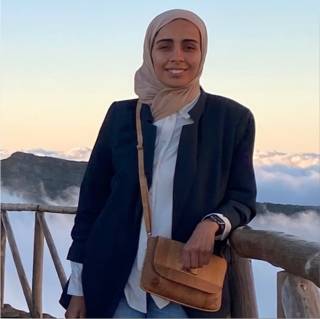
Twitter: @aisha_tec
Website: www.ucl.ac.uk/risk-disaster-reduction/people/phd-students/aisha-aldosery - Dr Diana Rojas Alvarez, Department Epidemic and Pandemic Preparedness and Prevention, Health Emergencies Programme, WHO
See above.
Closing remarks
- Professor Joanne Faure Walker, Head of Department, Institute for Risk and Disaster Reduction, University College London, UK
- Joanna Faure Walker is a Professor at the Institute for Risk and Disaster Reduction. She is the Head of Department of IRDR. She lectures on natural hazards, vulnerability, risk and their integration into decisionmaking. Her primary research is centred around studying faults in the Earth’s continental crust and using this to better understand the physical processes controlling earthquake generation, locations and timing. A related line of research integrates physical science research into risk and disaster reduction, including residents’ risk perception and vulnerability and resilience during the transitional phase of recovery.

About the Centre
The UCL IRDR Centre for Digital Public Health in Emergencies is part of UCL's Institute for Risk and Disaster Reduction. How society sees risk, links understanding of the causative mechanics to statistical approaches, and increases resilience and reduce the risk of disasters are common themes cutting across research in natural, environmental, health and technological hazards.
Don't forget to follow us on Twitter @UCL_dPHE for regular updates, news, articles and events connected to Digital Public Health and Digital Public Health in Emergencies.
Join our community positivity initiative by following us on Twitter and Instagram and using #MyActivityJournal & #MyLockdownJournal to find and share innovative pandemic activity ideas! #resilience #wellbeing #mentalhealth
 Close
Close


